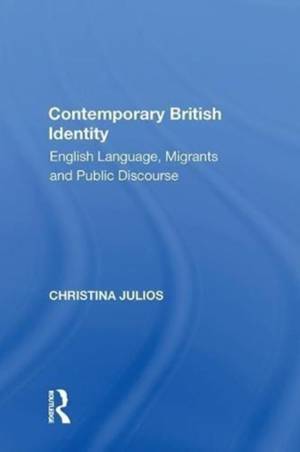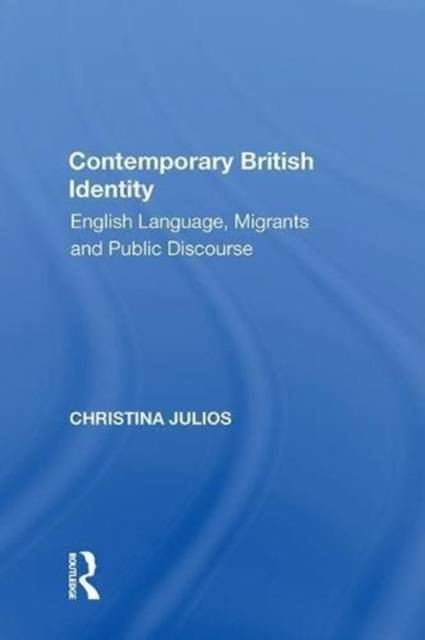
- Afhalen na 1 uur in een winkel met voorraad
- Gratis thuislevering in België vanaf € 30
- Ruim aanbod met 7 miljoen producten
- Afhalen na 1 uur in een winkel met voorraad
- Gratis thuislevering in België vanaf € 30
- Ruim aanbod met 7 miljoen producten
Zoeken
Contemporary British Identity
English Language, Migrants and Public Discourse
Christina Julios
Hardcover | Engels
€ 195,95
+ 391 punten
Uitvoering
Omschrijving
Against the background of an increasingly diverse British society, this book traces the evolution of British identity in the twentieth century. Debates exploring the nature of Britishness and multiculturalism are here deconstructed through a linguistic lens, which considers the role played by the English language in shaping Britain's national identity. Within this context, two significant historical events are considered: the expansionism of nineteenth century British Empire, and the subsequent rise of the United States to the position of world superpower. In charting the development of British nationhood over time, the book identifies three contrasting public narratives, each reflecting society's perceptions of the identity question at particular points in time: a discourse of laissez-faire at the turn of the century; a discourse of multiculturalism in the ensuing decades; and a discourse of integration during the closing years. The book raises fundamental questions about who we are as a nation and how we got here. It also provides clues as to the direction the prevailing public discourse on British identity is likely to take in the twenty-first century.
Specificaties
Betrokkenen
- Auteur(s):
- Uitgeverij:
Inhoud
- Aantal bladzijden:
- 208
- Taal:
- Engels
Eigenschappen
- Productcode (EAN):
- 9780815388180
- Verschijningsdatum:
- 29/11/2017
- Uitvoering:
- Hardcover
- Formaat:
- Genaaid
- Afmetingen:
- 156 mm x 233 mm
- Gewicht:
- 452 g

Alleen bij Standaard Boekhandel
+ 391 punten op je klantenkaart van Standaard Boekhandel
Beoordelingen
We publiceren alleen reviews die voldoen aan de voorwaarden voor reviews. Bekijk onze voorwaarden voor reviews.











